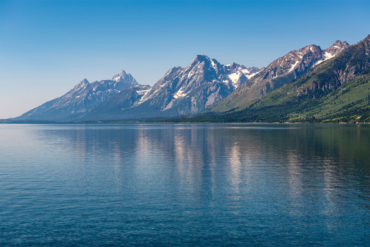Spring forward, fall back no more! If passed, the Sunshine Protection Act would permanently freeze clocks in daylight saving time, offering more light at the end of the day throughout winter.
In an era when virtually none of us can find unanimous common ground, the full contingent of U.S. Senators came together today across parties and ideologies to once and for all put an end to the madness of setting our clocks back every year.
Let that sink in. Never again will you have to sacrifice those final dwindling daylight hours in November for reasons nobody fully explained or understood.
The Sunshine Protection Act would take effect in November 2023 and repeal the “temporary period” of daylight saving time — effectively holding our clocks in “spring forward” time.
Despite the windfall of support — virtually every state has introduced some measure to end biannual time changes — the bill must still pass the House before it reaches President Biden’s desk.
It remains unclear if the White House supports the measure. If adopted, Arizona and Hawaii, which do not observe the time change, would be permitted to remain in standard time.
Sunshine Protection Act, Daylight Saving Time
Most everyone is befuddled by daylight saving time. For example, yes — it’s saving not savings. And no doubt, you’ve wondered where the spring-forward, fall-back tradition came from.

Some speculate it sprung from the mind of Benjamin Franklin — America’s catchall trivia answer. But no, despite his many contributions to U.S. history, the man behind the C-note had no impact on our clocks.
He did, however, jokingly quip in an essay that Parisians could save money on lamp oil by matching their sleep schedules to mirror the rising and setting of the sun (the essay wasn’t that funny).
And if you’re like this author, you’ve heard unsubstantiated claims that changing clocks serves kids waiting at cold, dark school bus stops. Also not true. Hailing from Minnesota and riding the cusp between Generation Xer and millennial, I can assure you the bus stop was almost always dark, cold — and perhaps because of the time changes — often late.
In truth, the history of switching up the clocks with spring and fall has a choppy and inconsistent history. It involves two World Wars, a once-agrarian, early-to-bed, early-to-rise society, and global political tensions tied to oil embargoes. It’s a sordid history, but one that increasingly rubs people the wrong way.
Several polls have found more than two-thirds of Americans prefer to stop changing the clocks. The persistent time change has also sparked debate among medical professionals about potential health effects.
The University of Texas Southwestern cited negative impacts on mood (depression), sleep dysfunction, and cardiovascular problems as possible consequences.
And according to Reuters, proponents of halting the clocks at longer evening daylight see business benefits (golf anyone?), reduced auto accidents, and energy savings.









